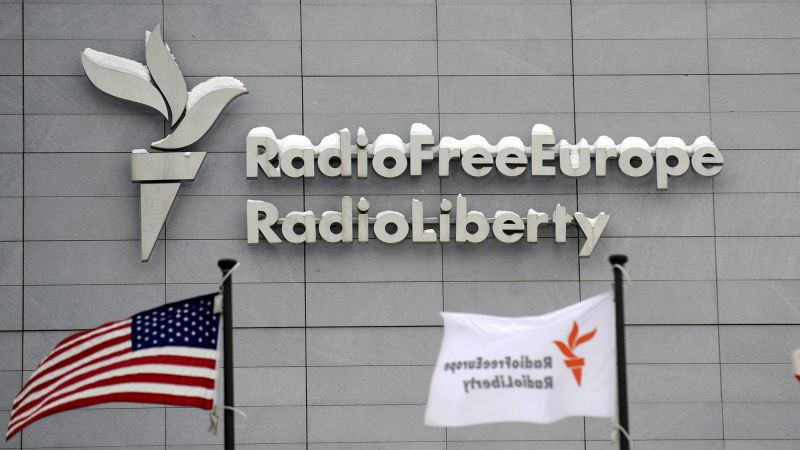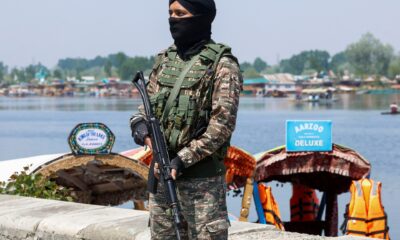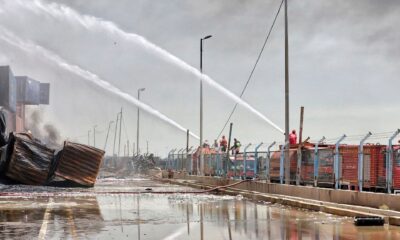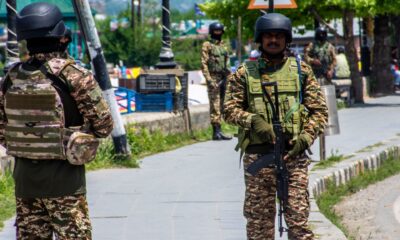CNN
—
Electricity is pulsing through Spain and Portugal again after a massive outage knocked out power in both countries on Monday. So too are questions.
It remains unclear what caused the sudden and staggering blackout, which plunged tens of millions of people into darkness and paralyzed life on the Iberian peninsula.
Authorities are investigating whether a freak event, a cyberattack or some other cause is to blame, while airports and train stations are catching up with a huge backlog.
Here’s what you need to know.
Spain’s electrical grid was running as normal until 12:33 p.m. (6:33 a.m. ET) when, suddenly, it suffered a disturbance.
Eduardo Prieto, the director of services for the grid operator Red Eléctrica, said the grid recovered after that first shock. But a second disconnection, one and a half seconds later, caused “a degradation of operating variables” of the system, leading to a “massive generation disconnection” and “disconnection of the connection lines with France.”
In the space of a few seconds, 15 gigawatts of energy suddenly dropped from Spain’s supply, Spanish government sources told CNN – equivalent to 60% of the electricity being consumed at the time – and the entire Spanish grid collapsed as a result.
“A second and a half may not seem like much. Indeed, it is nothing for any human action. In the electrical world it is a very long time,” Prieto said on Tuesday.

This is the crucial question that tens of millions of people in Spain and Portugal have been asking. And the answer is: We don’t know.
Past blackouts in Europe have often had obvious causes, like a fire or extreme weather. But this event occurred on a warm and sunny day in Spain, and more than 24 hours after the outage, it remains unclear why the entire country lost power.
The problem appears to have originated in Spain: Portugal’s Prime Minister Luís Montenegro was quick to point the finger at his neighboring nation on Monday.
Spanish Prime Minister Pedro Sanchez said at a Tuesday press conference that his government has created an “investigation commission.”
Sanchez said an excess in renewable energy production was not the cause, Reuters reported, ruling out one possibility.
He confirmed that Spain’s cybersecurity authorities are also looking into whether a cyberattack was the cause. Spain’s top criminal court also said on Tuesday it was exploring whether “an act of computer sabotage on critical infrastructure” was to blame.
Electricity was completely knocked out in most of Spain and Portugal for several hours, finally returning to most places on Monday evening.
Traffic lights, street lamps, payment terminals and screens were all cut off unless they were battery powered; many shops shut and others were forced to accept only cash payments.
Travel was badly hit: Flights were canceled in airports across Spain and Portugal. Dozens of Iberian cities, like Madrid, Lisbon, Barcelona, Seville and Valencia, are major hubs for transport, finance and tourism. Two of the five busiest airports in the European Union in 2023 were Madrid’s and Barcelona’s, according to EU data.
Police officers were forced to direct traffic with hand signals; roads quickly clogged and subway systems were closed down.
But the worst-case scenarios were averted: Spain’s nuclear sites were declared operational and safe, and hospitals in both countries ran on back-up generators.
It will still take days for the full cost of the crisis to become clear. On Tuesday, Spain’s emergency services said three elderly people died from suspected carbon monoxide poisoning after using electric generators during Monday’s blackout.


























